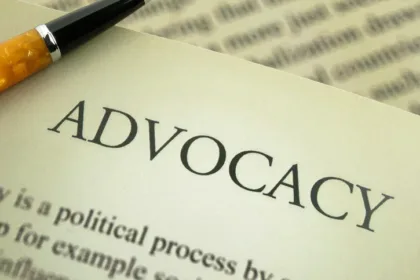
Advocacy is the act of representing or defending the interests of another person or group. In the legal context, advocacy involves advocating for the rights and interests of clients in legal proceedings, such as court hearings or negotiations with opposing parties. This may involve gathering evidence, developing legal arguments, and presenting a persuasive case to a judge, mediator, or opposing counsel.
Who Does Advocacy Help?
Advocacy can help a wide range of individuals and groups, including:
- Individuals facing legal challenges: Advocacy can help individuals navigate the legal system and protect their rights in legal proceedings. For example, in family law cases, advocacy can help parents protect their children’s best interests in custody disputes, or help individuals obtain a fair division of marital assets in divorce cases.
- Marginalised communities: Advocacy can help marginalised communities, such as low-income families, immigrants, or members of the LGBTQ+ community, access legal services and defend their rights in legal proceedings.
- Non-profit organisations: Advocacy can help non-profit organisations advance their missions and goals, such as advocating for social justice or environmental protection.
How Does Advocacy Help?
Advocacy can help clients achieve their legal goals in several ways, including:
- Providing legal expertise: Advocates have specialised knowledge and skills in legal matters, which they can use to advise clients and develop effective legal strategies.
- Gathering evidence: Advocates can help clients gather evidence to support their legal claims, such as witness statements, expert reports, or financial records.
- Developing legal arguments: Advocates can use their knowledge of the law and the facts of the case to develop persuasive legal arguments that support their clients’ interests.
- Negotiating settlements: Advocates can negotiate with opposing parties to reach a settlement that is in their client’s best interests, without the need for a
- Representing clients in court: Advocates can represent clients in court proceedings, such as hearings or trials, and present a persuasive case to a judge.
Conclusion
Advocacy is a critical component of the legal system, helping individuals, marginalised communities, and non-profit organisations achieve their legal goals. We have seen first-hand how effective advocacy can help clients protect their rights, obtain fair outcomes in legal proceedings, and move forward with their lives. If you are facing a legal challenge, it is important to seek the assistance of a skilled advocate who can provide legal expertise, guidance, and representation throughout the legal process.
Who Can Help?
If you or someone you know is in need of advocacy support, there are a number of organisations that can help. Here are a few options to consider:
Voiceability – Voiceability provides advocacy services to people with a range of needs, including those with learning disabilities, mental health issues, and physical disabilities. They work to empower people to have their voices heard and to make informed decisions about their lives.
POhWER – Pohwer offers free, independent advocacy support to people who are facing difficult issues such as social care, mental health, and NHS complaints. Their advocates are trained to support people who may have difficulty expressing their needs and views.
The Advocacy People – The Advocacy People provide advocacy services for a range of issues, including mental health, disability, and community care. Their trained advocates work to ensure that people’s rights are upheld and their voices are heard.
Matrix Advocacy – Matrix Advocacy offers advocacy services to people with mental health issues, learning disabilities, and autism. They work to empower people to make choices about their lives and to have their voices heard.
If you or someone you know is in need of advocacy support, reach out to one of these organisations for help. They can provide information, support, and guidance to help you navigate difficult situations and ensure that your voice is heard.



